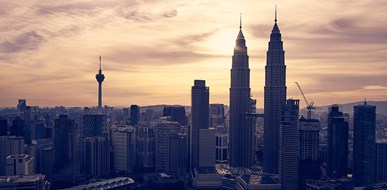How does International Law Play into the World Urban Forum and the Demand for Inclusiveness in International Processes?
Published 1 March 2018By Miha Marcenko

This February, a diverse group of actors gathered in Kuala Lumpur Malaysia for the 9th World Urban Forum. There were representatives of international organisations, national governments, municipal governments, NGOs, grass-root organisations, academics and private economic actors. Their aim was to assess the implementation of the New Urban Agenda, and to propose concrete ideas and mechanisms for achieving sustainable development and the eradication of poverty in cities. The main message coming out of the conference is that sustainable urban development requires inclusive political processes and thus "cities for all, where no-one and no place is left behind".
This request for inclusiveness of political processes is also aimed at global processes shaping the future of cities. Although not directly mentioned by participants, I argue that the object of desired change towards inclusiveness is the framework of public international law. It is the international norms that are shaping the international urban development agenda and enabling or limiting the meaningful participation of actors from within cities in relevant international urban processes.
As understood by the participants of the conference, sustainable urban development can only be achieved through multilevel decision-making, which includes public actors from global, national and local levels, citizens, and private economic actors. It is not just within cities that there must be broad participation when deciding on how to move the process of sustainable development forward. The famous mantra "nothing about us without us" must be applied in international decision-making as well. This means that decisions made in international forums, concerning urban development, must have an input from local governments and the urban civil society for them to yield successful results.
In the short final declaration, the participants recognized a persistent challenge of:
“Limited opportunities and mechanisms for youth, women, and grassroots organizations, as well as other civil society organizations, local, subnational and national governments, international and regional bodies to work together in planning, implementation and monitoring.”
These limitations for cooperation are related to all kinds of issues, including disaster response, humanitarian assistance, migration, climate change, and rising global economic inequalities, which are played out in cities across the world.
During the conference, participants of the World Assembly of Local and Regional Governments called for “global leaders to place their trust in local and regional governments, and allow local residents to be engaged at the core of decision making.” Whereas “other speakers emphasized renewing the relationship between the UN and regional and local governments.” During the Grassroots Assembly participants “called on the UN system to create a platform for the participation of grassroots organisations.”
Where is International Law in All of This?
At first glance, I could conclude that for the participants of the conference public international law does not play any role at all. It is not mentioned, neither in the final declaration nor in the summary of all discussions that have taken place during those six days. Human rights and Sustainable Development Goals are mentioned, as are international institutions. However, nobody addressed the legal framework that relates them to one another and that enables or prevents the inclusiveness the participants are after.
On one hand, this lack of attention to public international law is understandable. World Urban Forum is a ‘technical’ forum dedicated specifically to the implementation of the New Urban Agenda and nothing else. Participants come there with specific ideas on how to govern and develop cities and not on how to change the legal infrastructure of the international society. On the other hand, the request (and demand) for greater recognition and inclusiveness in global decision-making forums by actors from within cities is closely related to the broader international legal framework. International norms are prohibiting or enabling the participation of actors from within cities in global discussions. It is these norms that the participants want transformed towards greater inclusiveness.
Thus, public international law was absent but also implicitly present in the conversations. It was present through the voice of UN-Habitat and participation of international institutions such as the World Bank. More crucially, as I argue, it was present as the object of need of reform allowing more extensive participation of actors from within cities.
However, World Urban Forum in itself is already a part of the long-term change of public international legal processes towards greater inclusiveness. Ideas presented by various urban actors on how to implement and localize Sustainable Development Goals and how to effectively govern and develop cities are taken into account by various international actors. International norms are thus not only localised but also remodelled by the actors from within cities. Therefore, their innovative and aspirational thinking is slowly reshaping the global normative discussions. As always, it depends on who among the global leaders is willing to listen and realize that greater inclusiveness is necessary for any global project to succeed.

